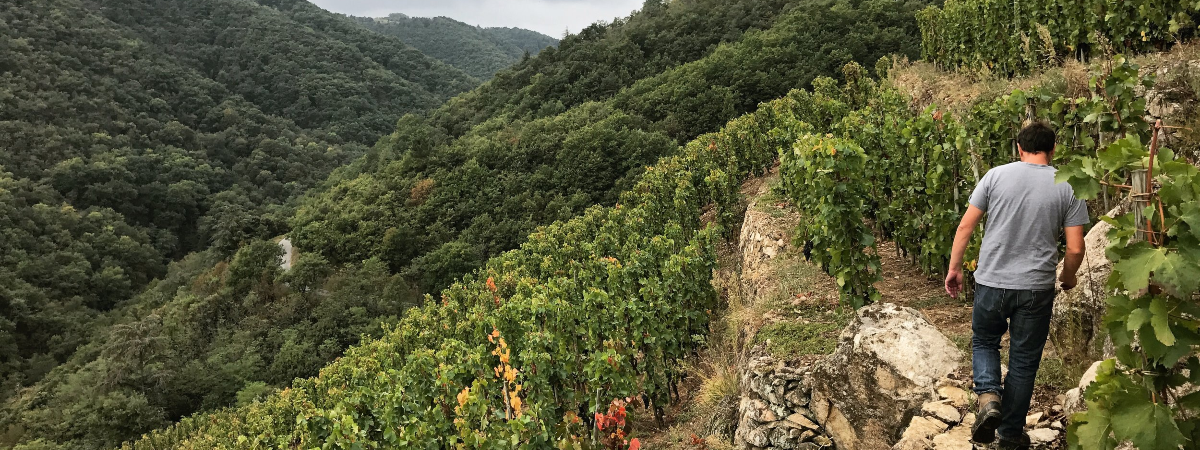We use cookies to make your experience better. To comply with the new e-Privacy directive, we need to ask for your consent to set the cookies. Learn more.
Jean-Louis Chave

The family’s wine origins in Saint-Joseph go back to 1481 and as you duck your head to traverse the labyrinth of small cellars under the house, you feel the history. The estate has been passed from father to son for sixteen generations and Jean-Louis’ parents still live above the cellar. The chance to purchase vineyards on the famous Hermitage hill came in the 19th century around the time of phylloxera and include ten hectares of Syrah and four hectares planted to Marsanne (80% and Roussanne (20%), with vines well over 50 years old. This holding is one of the largest in Hermitage and is made up of a patchwork of different parcels and soils. If you are lucky to taste with Jean-Louis, he will guide you through these different terroirs so that you can feel the components before tasting the final blend. I am tempted to share my notes on each of these parcels with you but for fear of losing your attention, I will only say that the 80-year-old vines grown on steep granite slopes at Bessards still resonate on my palate and my memory.
What has made Jean-Louis really excited over the last few years, is his reconstruction of the historic Chave vineyards in St. Joseph, on the hills above the cellar. His latest project there, replanting and terracing the beautiful Clos Florentin, has kept him busy for the last few years.
As to the winemaking, it varies according to the year and the climate. Fermentation takes place mainly in stainless steel (a very smart fermentation cellar was added in 2014). In warm vintages, not all of the harvest is destemmed and only a very small amount of new oak (around 20%) is added to the barrel cellar each year. The wines age for around 18 months before blending and bottling.
Jean-Louis took over from his father Gérard at the end of the 1980s and hasn’t stopped since. When asked by a colleague what was the key to Jean-Louis’ genius, I can only answer “precision”: in his myriad of blending tastings; his detailed knowledge of his parcels; his understanding of perfect grape ripeness. That coupled with his capacity for hard work and a good dollop of modesty, makes the current generation of the Chave family a worthy custodian of the domain.
Photo credit: grandcruselections.com
What has made Jean-Louis really excited over the last few years, is his reconstruction of the historic Chave vineyards in St. Joseph, on the hills above the cellar. His latest project there, replanting and terracing the beautiful Clos Florentin, has kept him busy for the last few years.
As to the winemaking, it varies according to the year and the climate. Fermentation takes place mainly in stainless steel (a very smart fermentation cellar was added in 2014). In warm vintages, not all of the harvest is destemmed and only a very small amount of new oak (around 20%) is added to the barrel cellar each year. The wines age for around 18 months before blending and bottling.
Jean-Louis took over from his father Gérard at the end of the 1980s and hasn’t stopped since. When asked by a colleague what was the key to Jean-Louis’ genius, I can only answer “precision”: in his myriad of blending tastings; his detailed knowledge of his parcels; his understanding of perfect grape ripeness. That coupled with his capacity for hard work and a good dollop of modesty, makes the current generation of the Chave family a worthy custodian of the domain.
Photo credit: grandcruselections.com



